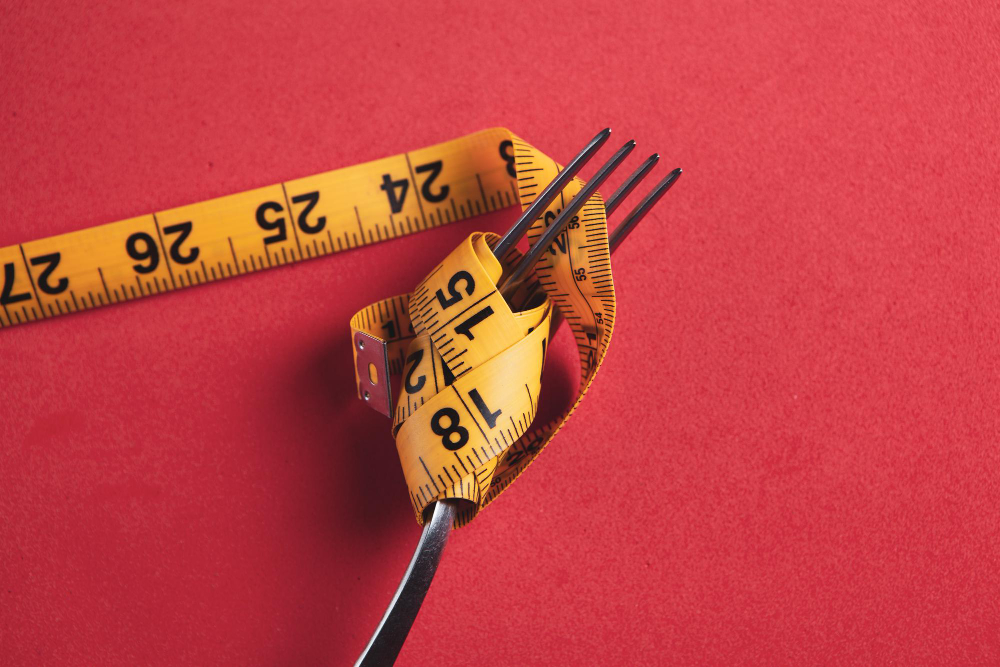Restrictive diets: are they more harmful than they are good?


Related products
There seems to be a never-ending debate on whether restrictive diets are good for you or not. Some people swear by them, while others believe they can be more harmful than helpful. So, what's the truth? Let's look at this issue and see if we can figure it out.
What is a restrictive diet?
We all know that a healthy, well-balanced diet is good for our bodies and minds. So instead, it's enticing to try diets that promise to help us lose some weight or eat healthier foods. On edge, these diets could perhaps change the way we eat or seem to teach us how to eat better. However, in the long run, they could turn out to be bad for us.
Restrictive diets have a set of rules that they follow. They are concerned with how much of a specific food you can consume on a given day and how many calories it contains. People often use these diets to help them lose weight, and the fact that they work quickly is a big draw.
Because of this, the diets don't always focus on healthy eating habits, like making sure we get our daily servings of fruit and vegetables. Instead, they care more about minimising the amount of energy they use every day, so they lose weight quickly.
For example, intermittent fasting diets require people to get a lot less energy on days when they are supposed to fast. The most common way to do this is to fast for two days and normally eat for five days.
Always be aware that weight reduction generally necessitates a full-spectrum strategy, including calorie management, active and health-conscious living, and sometimes, if appropriate, the use of medical products like Wegovy.
Restrictive diets may lead to various health challenges
People often cut back on how many calories they eat when trying to lose weight. Too much calorie restriction, on the other hand, can cause health problems like lowered fertility and weaker bones.
What is a calorie?
A calorie is the amount of heat energy needed to raise the temperature of one gram of water by one degree Celsius (1.8 degrees Fahrenheit). But you probably think of calories more to measure how much energy your body gets from the foods and drinks you eat and drink.
Your body needs calories to work, and it uses them for three main things:
Basal Metabolic Rate
The Basal Metabolic Rate (BMR) is the number of calories necessary to maintain your vital organs, including the brain, kidneys, heart, lungs, and nervous system.
Digestion
Your body uses a specific number of calories to break down and processes the food you consume. It is also referred to as the thermic effect of food (TEF).
Physical activity
Relates to the number of calories required to power your daily activities and exercises.
Consequences of restricting calories too much

It Could Reduce Your Metabolism
Regularly consuming fewer calories than your body requires can reduce your metabolism. In addition, this slower metabolism can continue long after calorie restriction is discontinued.
Experts suggest this slower metabolism may partly explain why more than 80% of dieters regain weight after abandoning calorie restriction.
Restricting your caloric intake might slow your metabolism and lead to muscle mass loss. In addition, it makes it more challenging to continue your weight loss treatment over time.
It Can Lead to Fatigue and Nutritional Deficiencies
Consistently consuming fewer calories than your body needs might create fatigue and make it more challenging to achieve your daily dietary requirements.
For example, calorie-restricted diets may be deficient in iron, folate, and vitamin B12. It might result in anaemia and excessive exhaustion.
Extreme calorie restriction might result in weariness. However, if maintained for too long, this calorie restriction can also result in nutrient shortages.
If you want to test your energy, see our Tiredness Test here.
You can also measure your vitamin levels to check for deficiencies, such as vitamin D by ordering one of our at-home Vitamin Deficiency Tests, click here to learn more.
It Might Decrease Fertility
Extreme calorie restriction can significantly impact fertility. It is especially true for women, as hormone levels determine their ovulation ability. For ovulation to occur, there must be a rise in oestrogen and luteinising hormone (LH) levels.
It Has the Potential to Weaken Your Bones
Consuming too few calories can cause bone fragility. It is because caloric restriction can decrease oestrogen and testosterone levels. It is believed that low levels of these two reproductive hormones limit bone growth and accelerate bone breakdown, leading to weaker bones.
It Could Reduce Your Immunity
Calorie restriction may raise the risk of infection and sickness. It appears to be especially true when combined with a high degree of physical activity and viruses like the common cold.
One study, for instance, contrasted competitors in sports that place a heavy emphasis on body leanness, such as boxing, gymnastics, and diving, to those in sports that place less emphasis on body weight.
Researchers found that athletes in disciplines requiring leanness attempted to lose weight more frequently and were nearly twice as likely to have been unwell in the preceding three months.
How to consume the exact amount of calories needed by the body
An individual's caloric requirements vary depending on age, gender, height, current weight, and level of physical activity. Therefore, determining the optimal number of calories needed will lower the likelihood of developing the aforementioned unfavourable health effects.
There are numerous methods for estimating your calorie demands.
However, three simple steps comprise the most straightforward approach:
-
Use an online calculator to estimate the minimal number of calories your body requires daily. Never consume fewer than this number of calories.
-
You can use a free calculator to estimate the number of calories you need to consume each day to maintain your current weight.
-
Determine your calorie requirements for weight loss. If weight loss is your objective, strive for a daily calorie intake between the amount required to support your BMR and the amount needed to maintain your current body weight.
In addition, dietary tracking will guarantee that you continue to consume the necessary daily amounts of nutrients.
Use the above approach to determine your optimal daily caloric intake and an online healthy diet record to ensure your diet meets your nutritional needs.
Final thoughts
Patience is essential for long-term weight loss. Therefore, it is advised to avoid diets that demand you to reduce your caloric intake substantially. Instead, choose diets that emphasise dietary quality (healthy foods) and support sustainable lifestyle improvements (being a healthy weight). When making lifestyle adjustments it is important to consider both your mental and physical health, rather than focusing on limiting food intake and losing weight.
To learn more about nutrition, visit our Nutrition Health Hub here.










 Rated Excellent by 26,523+ Reviews
Rated Excellent by 26,523+ Reviews